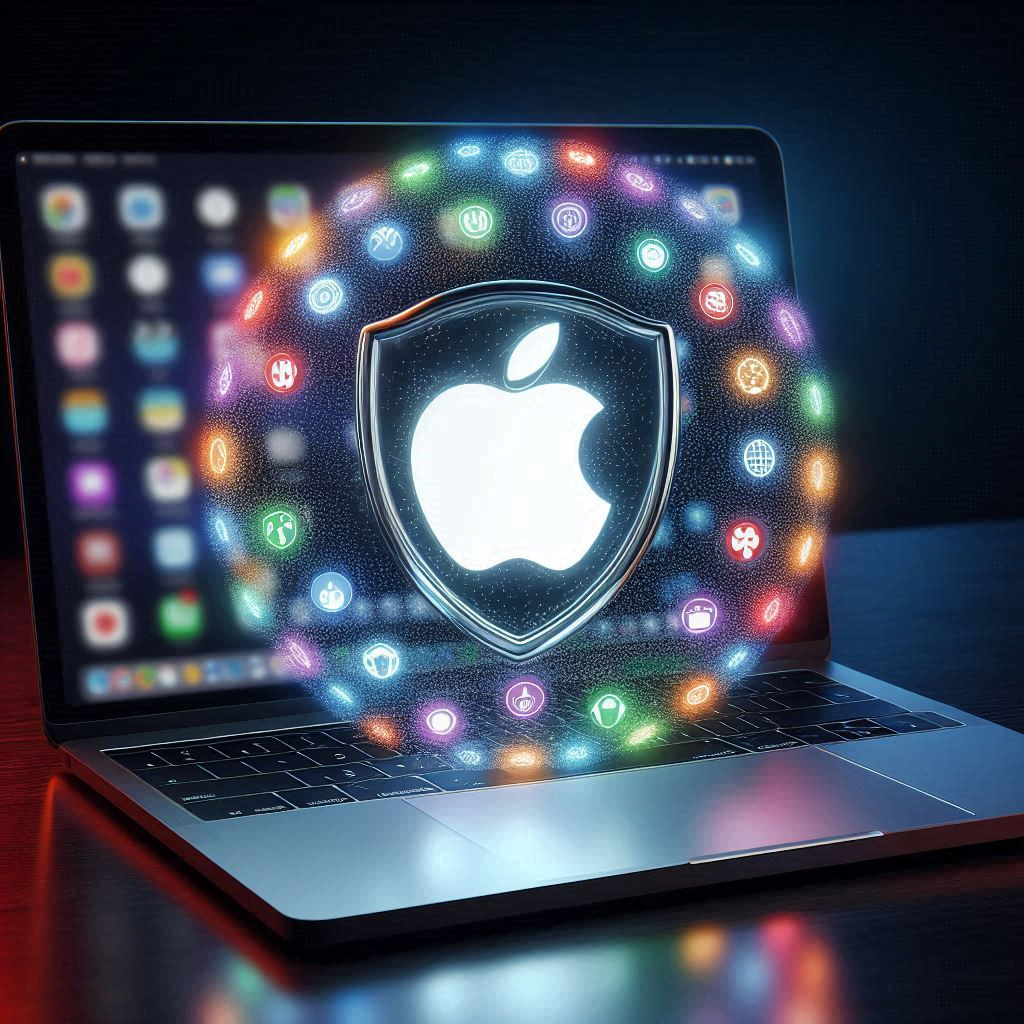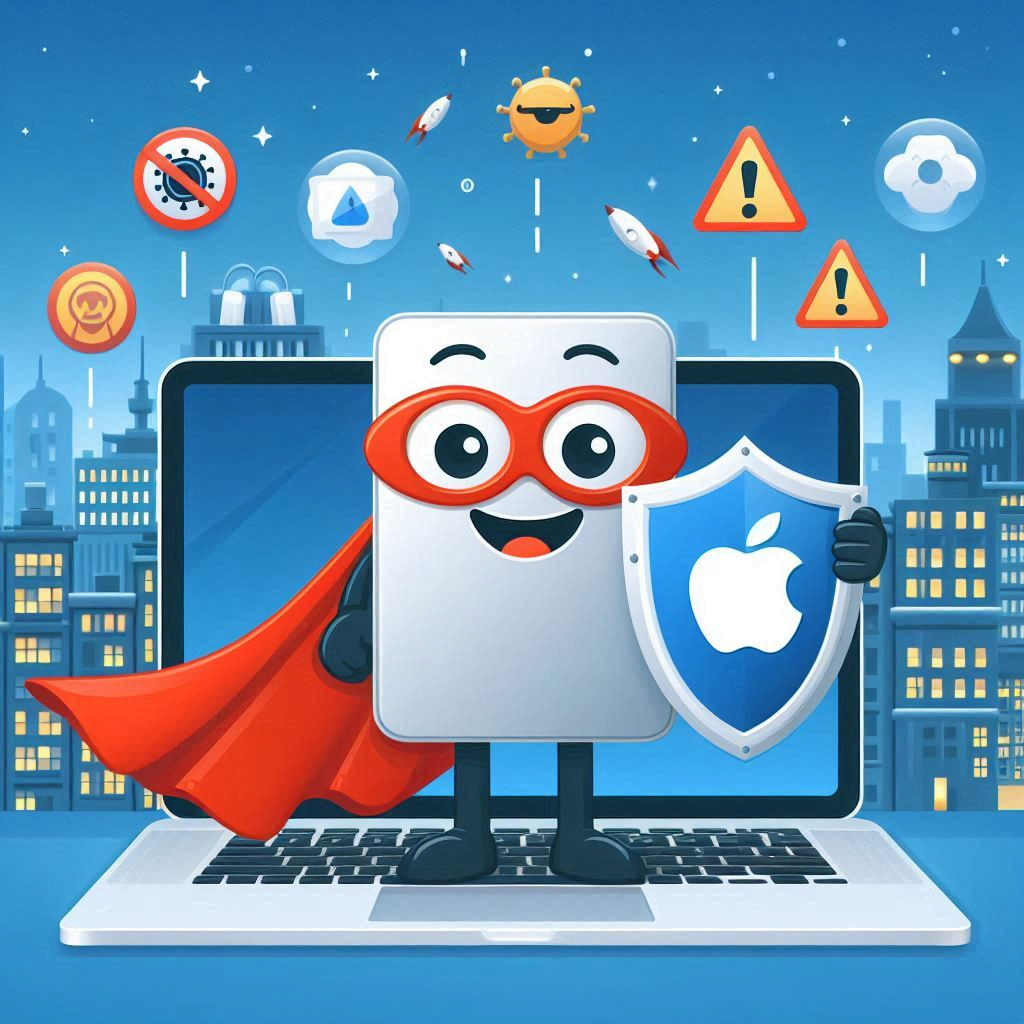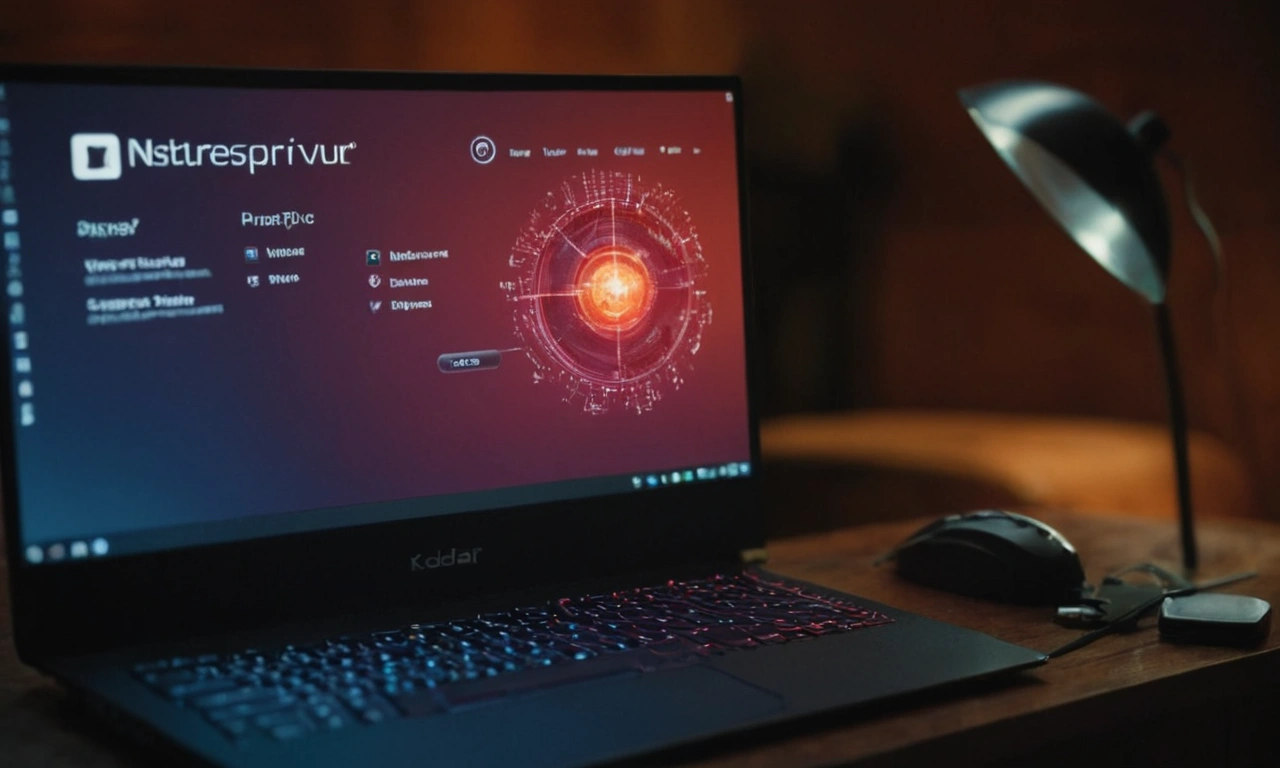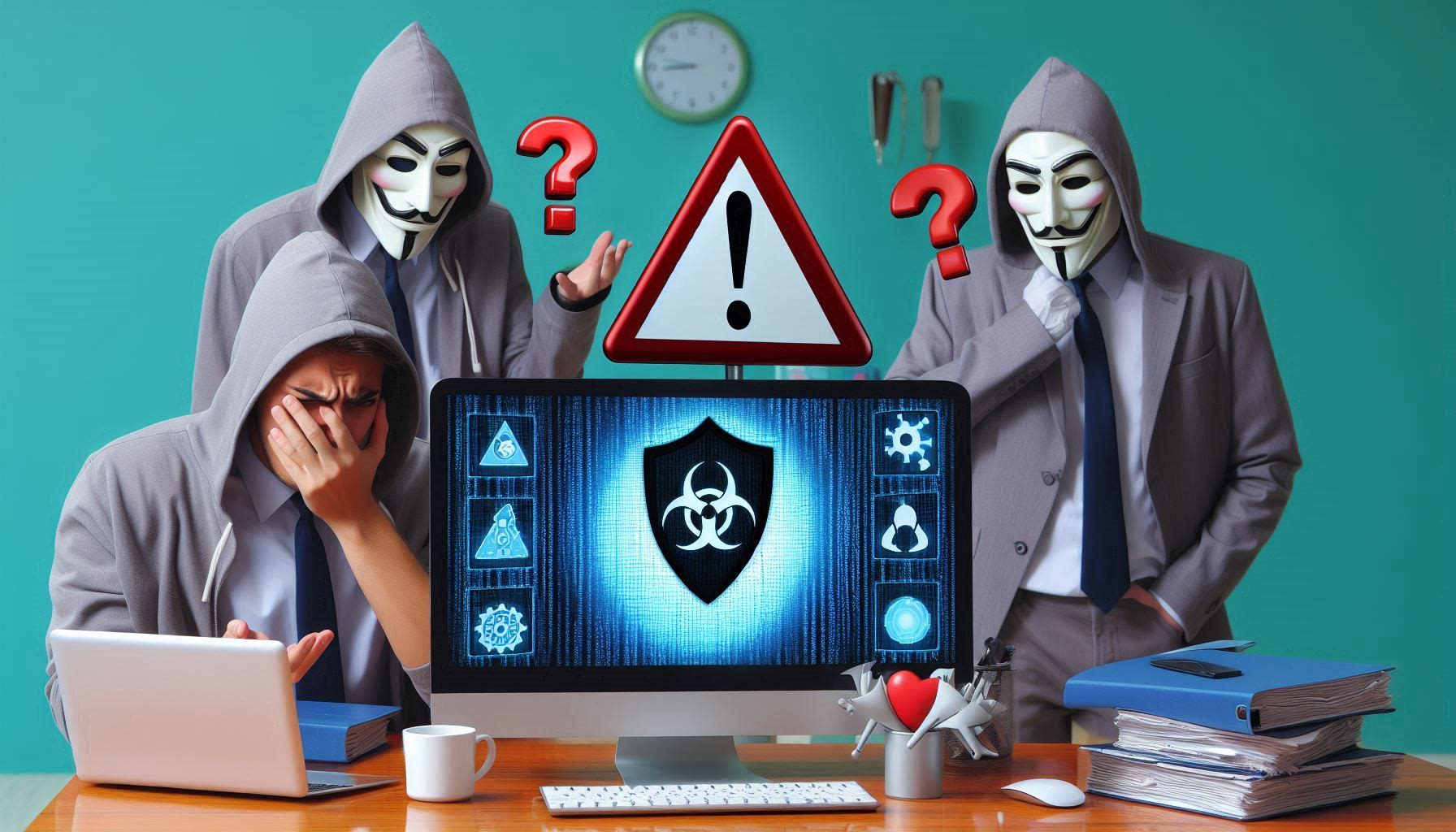Is an Antivirus Required to be Installed on a MacBook Pro?

Hi, today I’m going to tell you Is an Antivirus Required to be Installed on a MacBook Pro? In the current digital era, protecting our gadgets’ security is crucial. One question that MacBook Pro owners frequently have is whether or not their computers need to have antivirus software installed.
The purpose of this article is to examine the security environment of macOS, possible risks that MacBook Pro owners may encounter, and the function of antivirus software in protecting these gadgets.
Brief History of MacBook Pro and macOS Security
Since its launch in 2006, Apple Inc.’s flagship product, the MacBook Pro, has gained recognition for its svelte design, strong performance, and exceptional security measures. Over time, macOS, the operating system that powers MacBook Pros, has undergone tremendous evolution. It now includes a number of built-in security features that are intended to shield users from a wide range of cyber threats. The idea that Macs are impervious to malware and viruses has frequently arisen due to Apple’s dedication to security, but is this actually the case?
Importance of the Topic in the Current Technological Landscape
It’s critical now more than ever to comprehend your MacBook Pro’s security requirements because cyber threats are becoming more sophisticated and frequent. if you’re a professional or a casual user who depends on your MacBook for important work, understanding if antivirus software is required can have a big impact on the security and functionality of your computer.
Understanding macOS Security
Built-in Security Features of macOS
A comprehensive range of security mechanisms built into macOS are intended to shield users from a variety of attacks. These consist of sandboxing, FileVault encryption, XProtect, MRT, Gatekeeper, and System Integrity Protection (SIP). Every single one of these elements is essential to preserving the integrity and security of the system.
macOS vs. Other Operating Systems
The security of macOS has frequently been cited as being higher than that of competing operating systems like Windows and Linux. Its smaller user population, frequent security updates, and Unix-based architecture all contribute to this by making it a less desirable target for cybercriminals. This does not imply that macOS is impervious to assaults, though.
Apple’s Approach to Security
Apple takes a multifaceted approach to security, emphasizing both software and hardware. Users are meant to feel safe with the company’s strict App Store policies, frequent system updates, and proactive security measures. Despite these precautions, the question still stands: is additional antivirus software required, or is the built-in security of macOS sufficient?
Common Threats to MacBook Pro
Malware and Viruses
Malware and viruses do exist on macOS, despite their rarity in comparison to Windows, and if left unchecked, can result in serious harm. Trojan horses, worms, and ransomware are just a few examples of the various malware types that can jeopardize your data and the operation of your machine.
Phishing Attacks
Attacks using phishing techniques are a common concern for all internet users, including owners of MacBook Pros. Deceptive emails or websites are frequently used in these attacks in order to acquire personal data, including credit card numbers and login credentials.
Ransomware
One especially sneaky type of malware is called ransomware, which encrypts a user’s data and demands payment to unlock it. Ransomware assaults can be extremely destructive and are become increasingly sophisticated over time, even if they are less common on macOS.
Spyware and Adware
Adware and spyware are programs made to either display unsolicited adverts or collect data about a user. Users of MacBook Pros should be extremely cautious about these kinds of software since it has the potential to compromise your privacy and slow down your laptop.
Built-in Security Features of macOS

Gatekeeper
MacOS has a security mechanism called Gatekeeper that makes sure your Mac can only execute trusted software. Using digital signatures from recognized developers, it confirms the integrity of downloaded apps and prevents access to unsigned ones.
XProtect
The built-in antivirus program on macOS, called XProtect, automatically finds and gets rid of known viruses. Without requiring user input, Apple updates it frequently to counter emerging threats and offer a minimal level of safety.
MRT (Malware Removal Tool)
To get rid of malware that has been found on the system, XProtect collaborates with the Malware Removal Tool (MRT). Apple updates MRT on a regular basis to efficiently address emerging malware threats.
Sandboxing
Applications are restricted in their access to user data and system resources by sandboxing. MacOS keeps malicious malware from causing extensive damage by limiting its apps to their own private, segregated settings.
System Integrity Protection (SIP)
A security feature in macOS called System Integrity Protection (SIP) aids in preventing potentially harmful software from altering password-protected files and folders on your computer. SIP provides an additional security layer by limiting the root user account.
FileVault Encryption
Apple’s disk encryption tool, FileVault, helps guard against unauthorized access to data on your startup disk by using XTS-AES-128 encryption with a 256-bit key. If you turn on FileVault, you can be sure that your data is safe even if your MacBook Pro gets stolen or lost.
Third-Party Antivirus Software
Overview of Third-Party Antivirus Options
Even with macOS’s strong built-in security measures, a lot of users choose to add an extra layer of security by using third-party antivirus software. Numerous capabilities, including advanced malware detection, firewall protection, and real-time scanning, are available with these products.
Popular Antivirus Software for Mac
Mac users favor a number of antivirus apps, such as Malwarebytes, Avast, Bitdefender, and Norton. A variety of features designed to improve macOS security are provided by each of these solutions.
Comparison of Free vs. Paid Antivirus Software
While premium antivirus programs usually give more extensive coverage, including advanced malware detection, customer assistance, and other features like VPN and identity theft protection, free antivirus programs can only provide basic security.
Benefits of Third-Party Antivirus Software
Threats that the built-in macOS functions might overlook can be found and eliminated by third-party antivirus software. Additionally, they give frequent upgrades to defend against the most recent dangers and offer piece of mind through ongoing security and monitoring.
Do Mac Users Really Need Antivirus Software?
Arguments Against Needing Antivirus on a Mac
Many Mac users contend that macOS’s built-in security mechanisms are adequate to fend off the majority of attackers. They point to macOS’s Unix-based design, Apple’s proactive security measures, and the operating system’s comparatively low malware occurrence when compared to Windows.
Arguments for Using Antivirus Software on a Mac
However, some professionals advise utilizing antivirus software as an extra line of defense. They contend that since no system is impenetrable to attacks, having an additional line of protection can assist protect sensitive and private data.
Expert Opinions on the Necessity of Antivirus for Mac
Divergent views exist among cybersecurity professionals regarding the need for antivirus software on Macs. While macOS is typically safe, some people think that extra protection should be used due to the growing sophistication of cyber attacks.
Real-World Examples and Case Studies
The possible dangers of depending exclusively on built-in security features can be demonstrated through case studies and real-world situations. Cases of malware and other risks infecting Mac users emphasize how crucial it is to think about using third-party antivirus software.
Installing and Using Antivirus Software on MacBook Pro
How to Choose the Right Antivirus Software
Selecting the best antivirus software requires taking into account a number of aspects, including cost, convenience of use, system effect, and protection level provided. To choose which option best suits your needs, it is imperative that you read reviews and evaluate several options.
Step-by-Step Guide to Installing Antivirus Software
On a MacBook Pro, installing antivirus software is usually simple. The majority of products provide easy-to-follow installation procedures that walk you through the download, installation, and configuration of the software.
Tips for Using Antivirus Software Effectively
It’s essential to maintain your antivirus software updated, run regular scans, and turn on real-time protection if you want to get the most out of it. You can further improve Mac security by avoiding dubious downloads and adhering to safe browsing practices.
Performance Impact of Antivirus Software on MacBook Pro
Does Antivirus Software Slow Down MacBook Pro?
Mac users frequently wonder if antivirus software may cause their systems to lag. Many contemporary antivirus systems are made to be small and unobtrusive, even if some programs have the potential to negatively affect performance.
Managing System Resources with Antivirus Software
Selecting antivirus software that has adjustable settings is essential for efficient use of system resources. This enables consumers to maintain the responsiveness of their MacBook Pro while striking a balance between protection and performance.
Tips to Minimize Performance Impact
Users can disable extraneous features, plan scans for times when there is little activity, and undertake routine maintenance to maintain their systems optimal in order to reduce the performance impact of antivirus software.
Alternatives to Traditional Antivirus Software
Using Malware Removal Tools
Without the requirement for a full-featured antivirus program, malware cleanup programs like Malwarebytes can offer focused defense against particular threats. MacOS security features that are built-in are frequently enhanced by these technologies.
Browser-Based Security Solutions
Browser-based security tools, such as plugins and extensions, can aid in defending against online dangers and phishing scams. These tools provide an extra degree of security for online browsing.
System Monitoring Tools
Users can monitor the performance of their Macs and identify any unusual activity that might point to a security risk by using system monitoring tools. These tools offer information on possible weaknesses and system health.
Preventive Measures to Enhance MacBook Pro Security
Regular Software Updates
One of the best defenses against security attacks is to keep your macOS and applications up to date. Updates for software frequently contain fixes for security holes that malware might use to get access.
Safe Browsing Practices
The likelihood of coming across online risks can be considerably decreased by adopting safe browsing practices, such as staying away from dubious websites and never clicking on unexpected links.
Using Strong, Unique Passwords
Creating strong, one-of-a-kind passwords for each account can aid in preventing unwanted access. The creation and safe storage of complicated passwords can be aided by password managers.
Enabling Two-Factor Authentication
By demanding an additional form of verification in addition to your password, two-factor authentication provides an additional degree of protection. This can assist in preventing unwanted access even in the event that your password is stolen.
Regular Data Backups
By regularly backing up your data, you may be sure that in the event of a system breakdown or security incident, you can retrieve your information. Maintaining current backups is made simple by programs like Time Machine.
Case Studies
Case Study 1: MacBook Pro Without Antivirus
Analyzing the experiences of MacBook Pro users who only employ the built-in security safeguards can reveal possible weaknesses and shed light on how successful these measures are.
Case Study 2: MacBook Pro with Antivirus
Comparing the experiences of customers with third-party antivirus software installed might help highlight the advantages and possible disadvantages of employing extra security measures.
Expert Insights
Insights from Cybersecurity Experts
Experts in cybersecurity can provide insightful opinions on the value and necessity of antivirus protection for MacBook Pros. Users can utilize their insights to make well-informed judgments about the security demands they have.
Recommendations from Tech Professionals
Experts in technology who frequently deal with macOS can offer helpful guidance on protecting the security of your MacBook Pro, such as by using antivirus software and other safeguards.
Conclusion: Is an Antivirus Required to be Installed on a MacBook Pro?
In conclusion, even though macOS has a number of strong security measures, users of MacBook Pros may find that extra protection from antivirus software is helpful given the constantly changing nature of cyberthreats. Maintaining the security of your device requires knowing the possible threats, taking precautions, and selecting the best antivirus program.
My Final Thoughts on Antivirus for MacBook Pro
Ultimately, it is up to you and your usage habits whether or not to install antivirus software on your MacBook Pro. However, by being aware of potential risks and taking preventative measures, you can make sure that your Mac is safe from them.
Call to Action for Further Education
There are lots of resources online for people who want to learn more about antivirus software and macOS security. It’s crucial to stay current on cybersecurity trends and best practices if you want to keep your digital environment safe.
FAQs
Do Macs Get Viruses?
Yes, Macs can get viruses, although the incidence is lower compared to Windows. It’s important to stay vigilant and take preventive measures to protect your Mac.
How Often Should I Scan My Mac for Malware?
It’s recommended to scan your Mac for malware at least once a week, or more frequently if you suspect an issue. Regular scans help ensure that your system remains clean and secure.
Can Antivirus Software Protect Against Phishing?
Antivirus software can offer protection against phishing by blocking malicious websites and scanning emails for suspicious links. However, user vigilance is also crucial in avoiding phishing attacks.
What is the Best Free Antivirus for Mac?
Several free antivirus programs are available for Mac, including Avast and AVG. These programs offer basic protection, but it’s worth considering paid options for more comprehensive coverage.
How Do I Know If My Mac Is Infected?
Signs that your Mac may be infected include unusual system behavior, slow performance, unexpected pop-ups, and applications crashing frequently. Running a malware scan can help identify and remove any threats.
Loading newsletter form...




